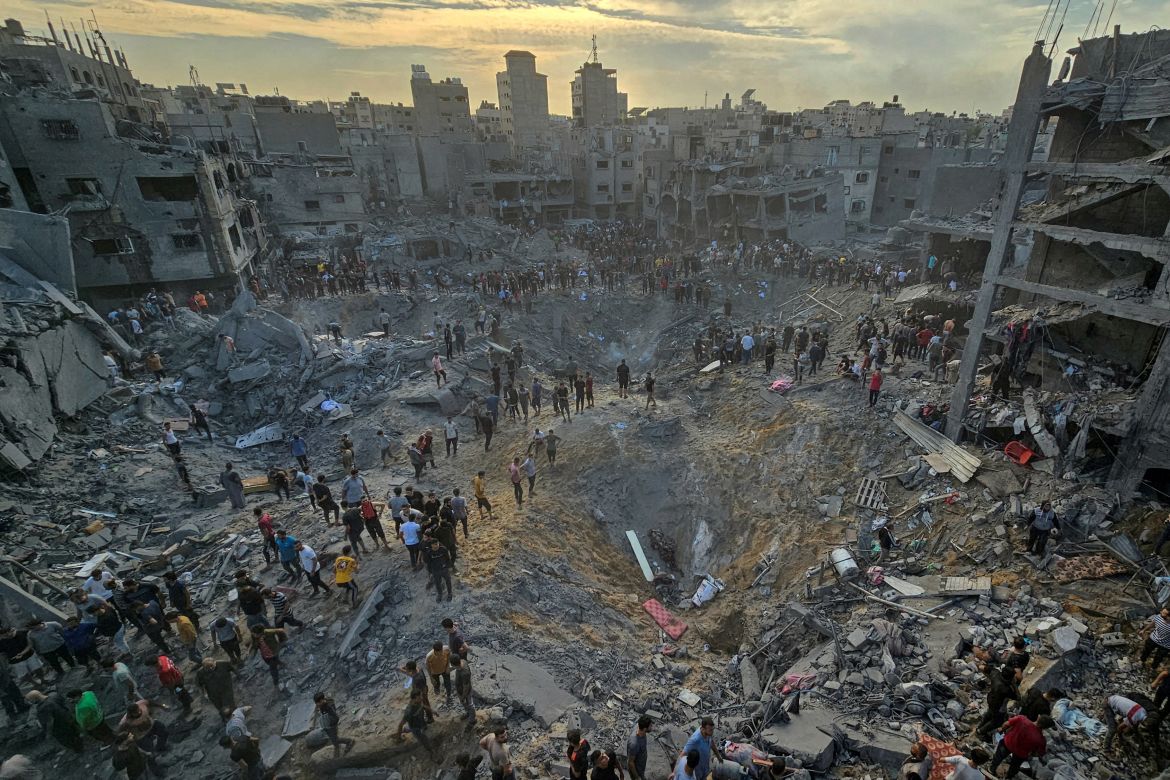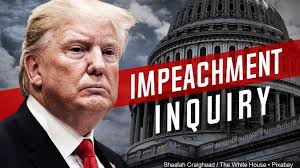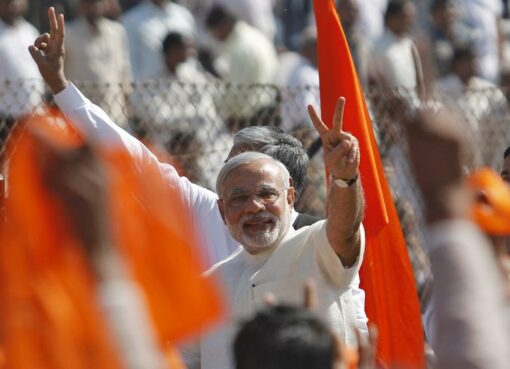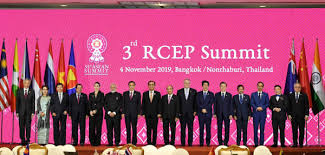Palestinians need to introspect the reasons for their current pathetic state and give birth to new and more pragmatic leaders who can negotiate a phased resolution to a statehood. What can really change the scenario is emergence of new leadership both in Israel and Palestine.
by Ankineedu Prasad Nallapati
People around the world are rightly enraged over Israel’s collective retribution on Palestinians across Gaza in response to October 7 terrorist attack by the Hamas group killing and kidnapping hundreds of civilians across the border.
This is not the first time the Gaza strip is witnessing such a violent eruption. The first mass uprising, popularly known as Intifadah, raged for six long years that ultimately led to Madrid conference and Oslo peace accord of 1993. It was a spontaneous popular uprising in protest against not only Israeli settlement expansion but also Palestinian leadership in exile for its failure to mobilize international sanctions.
The Palestinian leadership under Yasser Arafat had squandered that extraordinary opportunity which could have realized their dream of a separate Palestinian state. The final Oslo II accord of 1995 was a much-truncated arrangement that set up a powerless Palestinian Authority in disjoined areas of West Bank and Gaza strip that was enjoined to control terrorist activity. Sure panacea for failure.
FAST-FORWARD TO THE PRESENT
There is no more such inspired leadership that can help resolve the issue. Yitzhak Rabin, the then Labour Party leader and Prime Minister of Israel, was killed in November 1995 by an extremist Jew who was opposed to Oslo accords. The country slipped into hands of right wing led by Benyamin Netanyahu, who is still the Prime Minister, ruling out any prospect of a two-state solution.
Yasser Arafat’s death in 2004 robbed the Palestinians of a highly admired leadership and what followed was a corrupt and unpopular administration led by Mahmoud Abbas, who is 88 years old but still clings to what little power left. He made sure that no younger leadership grow under his shadow.
The result was the growth of Hamas that gained a powerful hold on popular imagination with its daring attacks on Israelis. Iran and its allied militant groups, like the Hezbollah, filled up the void of international support.
Gone are the days when the United Sates had genuinely promoted peace and a two-state solution. President Trump has moved the US embassy from Tel Aviv to Jerusalem and closed operations of the consulate catering to Palestinians. He engineered `Abraham accords’ promoting diplomatic relations between Israel and Arab countries. The UAE, Bahrain, Morocco and Sudan have so far normalized relations with Israel under these accords.
The Biden administration has not only continued this policy but further improved upon it to get Saudi Arabia on board, which was ready to sign agreement with Israel before the attacks put it on hold.
Secretary Blinken’s shuttle diplomacy to end current inferno lacks any seriousness for realistic outcomes.
China’s new pretensions of a peace maker has few takers. Russia is bogged down in Ukraine.
WHERE DO PALESTINIANS STAND!
Unlike the first Intifadah, the October attacks by the Hamas appear to be a well-coordinated by its activists abroad. It was aimed at bringing back the forgotten Palestinian issue to international attention and weaken the Israeli government led by Netanyahu. While the latter may fall soon after the battle, other objectives of getting a quick ceasefire and mutual exchange of hostages/prisoners remain unrealized.
Israel’s stated aim of its unrelenting strikes in Gaza is to end forever any further prospect of Hamas terrorist attacks. It will not end it until it killed the Hamas leader Yahya Sinwar and his associates hiding in Gaza tunnels surrounded by Jewish hostages.
Worst, Israel is reportedly negotiating with Congo and other African countries for forced mass relocation of Palestinians from Gaza to these countries.
Neither Israel nor the Hamas, backed by Iran, is interested in two-state solution and the two in fact would want complete annihilation of the other.
INTERNATIONAL SUPPORT MORE A MIRAGE
Popular sentiment in the Arab world is fully sympathetic toward the suffering of Palestinians but their support ends there. There is no real pressure on their governments to do more to end the distress.
Arab leaders have been carefully maneuvering to avoid stepping on popular sympathies. They supported calls for ceasefire and extended humanitarian aid to Palestinians in Gaza.
None of the signees of Abraham accords is seen retracting. Saudi Arabia reaffirmed its commitment to normalize relations with Israel after the war as it sees the latter as central to its economic goals under Vision 2030. Its condition of a pathway to Palestinian statehood is more a play to popular gallery.
South Africa is the only country spearheading `genocide’ charges against Israel in the International Court of Justice, while all other African countries maintained a neutral status as they have set up their own unique partnerships with Israel.
Even Pretoria’s initial reaction was no different from other countries with President Ramaphosa criticizing both Israel and Hamas for atrocities committed by both sides. Its lone battle in the ICJ appears more to do with its own domestic issues and international aspirations.
Mandla Mandela seems to be positioning himself for leadership of the ruling ANC party and is unhesitant to use his grandfather, Nelson Mandela’s legacy. He is in the forefront of leading pro-Palestinian rallies and pushing government to take a hard line. South Africa, long been pre-occupied with internal struggles, is coming out of its shell to regain its status using various platforms like the BRICS.
For South Africa, ICJ may give a symbolic pat on the back to claim leadership of global south, but it is not going to bring any material change for Palestinians.
WHAT’S THE END GAME
Palestinians are claiming to be the winners of this phase of the battle, but a close scrutiny belies such hopes. Gaza is flattened, several thousands died and many more facing prospects of forced repositioning in Africa. There are no signs of any serious move for an international conference to chalk out a path to a two-state solution.
The US has already moved into election mode, and it is playing more a role of firefighter to avoid the Gaza war spreading across the region. It is trying to resurrect Mahmoud Abbas for a post-war role, meaning a status quo.
Attacks by pro-Iranian groups on Israel and Red Sea shipping are unlikely to change the course of current equations. Disruption of shipping and consequent flare up of prices are a short-term problem which US and its allies can tackle in due course.
What can really change the scenario is emergence of new leadership both in Israel and Palestine. Palestinians need to introspect the reasons for their current pathetic state and give birth to new and more pragmatic leaders who can negotiate a phased resolution to a statehood. There are no short cuts.
(Ankineedu Prasad Nallapati is President of the Hyderabad-based think-tank, `Deccan Council for Strategic Studies’, and former Additional Secretary to Govt of India)




